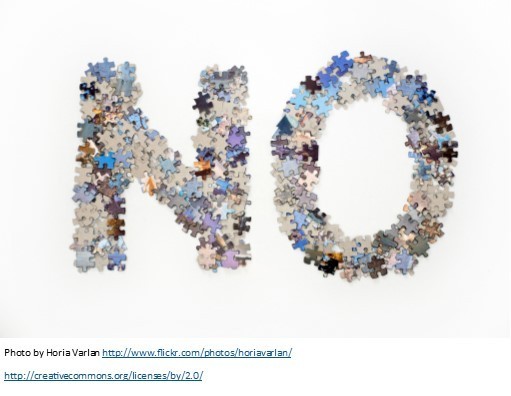Beth Beutler's Blog, page 44
February 24, 2014
Managing Conflict (Business Soft Skills Class) [Event]

Date:
March 10, 2014—March 11, 2014
Time:
8:00a.m. – 4:00p.m.
Event:
Managing Conflict (Business Soft Skills Class)
Topic:
Managing Conflict
Sponsor:
CCT Business Training
Location:
Greenville SC
Public:
Public

Coffee Break Bible Study: Mark 8-12

Read Mark 8.
How did Jesus handle feeding a large crowd?
Jesus was impatient with religious leaders who always seemed to want “a sign.” Do you try to ask God to give you signs about things that you perhaps already know He wants you to do?
Read Mark 9.
Why do you think God redirected Peter’s attention in verse 7?
What encourages you about Jesus’ healing of the boy?
Read Mark 10.
What is God’s hope and intention for marriage?
How did Jesus respond when the disciples tried to send the children away?
Read Mark 11.
Why do you think Jesus may have cursed the fig tree? (See verses 20-25 for some possible further insight.)
Why did Jesus drive out the merchants from the temple (note what He called them)?
Read Mark 12.
What do verses 10-11 seem to point out?
How do you interpret Jesus’ teaching about taxes?
I appreciate your comments (press the comment button in the share bar above the post, use the Facebook comments that appear, or if receiving this by email or feed, visit the site to comment.) Please share these free studies!

February 20, 2014
There IS an “I” in “TEAM”
There is a well-known quip that there is no “I” in the word “team.” After all, team is spelled T-E-A-M. One catalog for team building materials uses TEAM to mean “Together Everyone Achieves More.” There’s truth to that.

In real life though, using team building language, giving out mugs or hanging posters doesn’t automatically lead to a team working “like a well-oiled machine.” It takes time, effort, and understanding to truly relate as one, and it isn’t going to happen unless each member does indeed focus on the missing “I” in “team.” Teamwork starts with YOU.
Teams are only as good as the individuals that make them up. Yes, the whole is greater than the parts, but if the parts are defective, the team will be affected. (Hey, that sounds like another quip! “Parts Defective Means Teams Affected.”)
So, the place to start with team building is you. Here’s an assessment to help you determine what type of a team player you really are. Ask yourself:
Do I enjoy working with other people? (Some personalities would rather be in a corner doing tasks all day.)
When I meet with other team members, do I contribute to the conversation? (Or do I sit and say nothing?)
When I share my ideas, do I limit my words so others can contribute too?
Do I want people to carry out my idea in exactly the way I envision it?
Am I willing to ask questions to learn from others with a different expertise?
If I’m naturally a take-charge person, do I willingly step back sometimes to open opportunities for those less likely to step up?
Do I feel I am more experienced than the others on my team and that they should listen to me most of the time?
Do I note what is going on with others by truly listening, acknowledging events like birthdays or accomplishments?
Am I quick (but not insincere) in giving thanks and praise to others in the way they would most enjoy? (i.e. not embarrassing them)
Do people come to me to ask for help? Am I approachable?
If you are really brave, after answering these questions, give them to your coworkers to answer anonymously on your behalf. Do the answers match up? Be prepared to make changes without defensiveness if something surprising is revealed to you. In the long run, that will be for your good and the good of the team! Make sure the “I” in your team is the best example of teamwork!
As it is, there are many parts, yet one body. The eye cannot say to the hand, “I have no need of you,” nor again the head to the feet, “I have no need of you.” I Corinthians 12:20 NIV
Question: Which of the above ten questions gave you pause?

February 17, 2014
Coffee Break Bible Study: Mark 3-7

I’m grateful to have received a bit of feedback on these posts and to know that they are being used in America and beyond! Thank you for taking time to share that with me.
All of the Coffee Break Bible Study posts are archived on the Elevate page. You can jump in any time!
Read Mark 3.
Consider the process of Jesus picking his disciples. What do you think was going through His mind?
How did Jesus handle the request of His family wanting to see Him? What do you think they might have wanted?
Read Mark 4.
Why do you think Jesus used stories to teach?
Of the four types of ground described, what would most describe your heart toward God? Draw a picture of the type of ground you think you are.
Read Mark 5.
Why do you think Jesus told the man to go tell his family what had happened to him?
What do you think of Jairus?
Read Mark 6.
The people assumed something about Jesus. What was it?
Do you every feel like Jesus did when He said “Prophets are honored by everyone, except the people of their hometown and their relatives and their own family.” (5:4 CEV)
Read Mark 7.
How did Jesus feel about human rules?
In verse 24, Jesus tries to get away but it doesn’t work. Do you take time to try to be away from your normal schedule?
I appreciate your comments (press the comment button in the share bar above the post, use the Facebook comments that appear, or if receiving this by email or feed, visit the site to comment.) Please share these free studies!

February 13, 2014
Why I Don’t (Generally) Boycott

“Send a message! Don’t shop at ________________!”
Boycotting is a popular activity. I can think of several events in the past that prompted many to consider boycotting certain businesses.
The pro/anti gun debate with Starbucks.
Chick-Fil-A‘s stand on marriage.
A cheating scandal in NASCAR that resulted in a team losing a major sponsor.
And then there was Thanksgiving.
Social media was peppered with people pressing others not to shop on Thanksgiving Day because of consumerism, greed, and the possibility of making other people work to fulfill our desire to shop.
The sentiment was a good one. It was based in thoughtfulness, the desire for society to occasionally have some down time, and an opportunity to “take a stand” for family values. I respect those who chose not to shop on Thanksgiving Day. In fact, that is the best way to show a business that it’s not worth being open on a particular day. Just don’t go.
As altruistic that boycotting seems to be, though, it often lacks substance.
I’m hardly a shopper. I don’t like maneuvering around crowds and being in stores too long actually tires me out, unless I am looking for or considering specific products. It’s just not that fun for me. But I admit I was tempted to go to a store on Thanksgiving Day just to be a rebel against the assumption that good, thankful, family-value people won’t be shopping. (Actually, my husband and I had a lovely “just us” Thanksgiving meal at the Lazy Goat so we ended up making someone work on our behalf. So to quote a Huffington Post article, we were apparently “part of the problem” although our waiter had a lovely attitude and looked forward to enjoying his family time that evening.)
Thus, I generally chose not to participate in public boycotts. I say “generally” because there may indeed be a specific situation where I feel it is appropriate. There are some businesses I choose not to patronize, so I’d be a hypocrite to say I never privately boycott anything. But there are several reasons I don’t jump on the public boycotting bandwagons that are shared across social media, and here’s why.
It’s hard to be consistent.
If I choose not to shop on Thanksgiving because I am “making someone miss time with their family,” then I’d better not watch a football game, go on a cruise, visit Disney World, pick up someone at the airport, watch television, use the Internet, or need medical help or protection of some kind. All of those services require that someone (lots of someones) be working so that I can partake or be served/protected. Why are retail stores singled out as the bad guy? And don’t get me started on avoiding a certain store because of a stand they have somewhere down the line, or I would probably not be able to shop anywhere.
It oversimplifies the problem.
Greed and addiction to shopping (for example) is a heart problem. Do I think society is creating an environment for greed? Yes, indeed. We are bombarded with the marketing of discontentment. But whatever society does, I am responsible for my own heart attitude. I could choose not to shop on Thanksgiving Day, yet way overspend my budget the very next day or week. The heart trouble of greed is still there.
It puts someone else to blame for my issues.
People seem to feel that if the stores and restaurants are closed a certain day, that will help families be more connected and relaxed for a day. I can meet you there–it is very nice to have a “down time atmosphere” in the community occasionally. But why can’t my family decide for themselves what day they are going to shop or celebrate a holiday? Our Walmart is open 24 hours a day. That doesn’t mean I feel compelled to go there at 2 am.
It makes it easier to judge others.
Some of the statements on social media can go so far as to claim that if someone does or does not do a particular thing (i.e. avoid shopping on an actual holiday) they are “part of the problem” which then sets the writer up as “not” a part of the problem. Got news for ya. You and I are both sinners and your participation in a boycott does not necessarily make you a better person.
It doesn’t open the door for dialog.
Some actions surrounding boycotts do not set up a good environment for discussion, helping kids process decisions about grey areas, or inviting those of differing beliefs to consider your point of view. Instead, they come across as legalistic, black-and-white rule following that may or may not really change anyone’s heart.
It reeks of pride.
When you read a post about how you shouldn’t participate in something, does it come across as humble and thoughtful? Not often. Plus, the public nature of it tends to call attention to the writer’s “good works,” rather than a quiet and gentle spirit. If you are going to boycott, decide what and why and for the most part, be consistent with it without advertising it. At the least, be gracious when you do share your stand.
I have a friend who has chosen not to shop at a particular store for over 15 years. She doesn’t broadcast it…she quietly carries out her conviction because she feels it is right between her and the Lord, even though she knows it may not have much financial effect on the store.
Let your speech always be gracious, seasoned with salt, so that you may know how you ought to answer each person. Colossians 4:6
It may keep me from blessing someone.
I know of at least one person who volunteered to work on Thanksgiving because she needed the hours and the money, and another who opted not to because she didn’t want to spend the holiday anticipating having to go to work in the evening. They both made choices that worked for them. I realize employers don’t always provide those choices, but there are industries that you have to go into with open eyes because they naturally require strange hours. (i.e. medical, first responders and yes, retail, come to mind.) It’s quite possible that not everyone working on a holiday hates it and they will be blessed by the money that they will earn (possibly at a higher rate) by working that day.
It invalidates freedom.
As a business owner, I prefer that society or a governing body not be involved in telling me when I can and cannot work. If I want to work on my blog or a book at some crazy hour, I should be able to do so provided I am not harming someone else. To me, if a store chooses to be open, so be it. If customers don’t shop that day out of principle, maybe the store will realize it’s not worth it to be open. But let’s not make blanket statements. Someone who gets sick on Thanksgiving Day may really appreciate the opportunity to run to Walmart for some medicine. I’m not suggesting a free-for-all. Reasonable regulations have their place to provide consistent health and safety to patrons. But your safety and health aren’t really affected by whether the store is open or not so let’s not over-regulate.
Ironically, boycotting would be just the kind of thing that would fit part of my personality–the part that likes to know I’m following the rules and accepted by others. But that may just be another reason I generally shouldn’t participate.
So, boycott as you wish, but be careful what and how you communicate to others when it comes to “taking a stand.”
Note: the thoughts I share are mine and relate to how I process the Christian life. I understand some of my brothers and sisters in Christ may have far different outlooks. I respect the differences and invite gracious dialog. You can comment using the comment button, Facebook comments, or if reading this in RSS or via email, visiting the blog.

February 11, 2014
What is your biggest challenge when it comes to Bible reading? (answering this question can qualify for entries in the giveaway that ends 2/22. Visit the “special offers” link to enter.) [Question]

What is your biggest challenge when it comes to Bible reading? (answering this question can qualify for entries in the giveaway that ends 2/22. Visit the “special offers” link to enter.)
Answer this question on my blog and join the discussion →

February 10, 2014
Coffee Break Bible Study: Matthew 26-28; Mark 1-2

If you’d like to catch up on previous Coffee Break Bible Studies for Matthew, visit this page for links to all the posts.
Read Matthew 26.
What practice did Jesus introduce in verses 26-29? How does your church practice this?
What emotions was Jesus feeling in this chapter?
Read Matthew 27.
What touches you about what Jesus did for you in dying on the cross? Take some time to think about that and thank Him today.
What did Jesus promise, referred to in verse 63?
Read Matthew 28.
What thrilling thing happens in this chapter?
How does Jesus want us to go forth and live?
Read Mark 1.
Why do you think God made Jesus go into the desert?
What are some of the things Jesus did as He started His ministry?
Read Mark 2.
What are your thoughts about the people who cut a hole in the roof?
What type of people did Jesus hang around with?
I appreciate your comments (press the comment button in the share bar above the post, use the Facebook comments that appear, or if receiving this by email or feed, visit the site to comment.) Please share these free studies!

February 6, 2014
Five Tips to Help You Be Nicer on Facebook

I just passed my five-year anniversary on Facebook. The first post I can find on the timeline was from January 1, 2009, although I think I actually joined sometime in 2008. So I’ve been on the network for five years.
I’ve learned a lot.
There are several positives to being involved but there are also negatives, including easy mistakes to make. There are things I would tell my “five-year-ago-me” if I was starting over.
A guiding principle for social media–and all of life–is to consider others before posting.
Do nothing out of selfish ambition or vain conceit. Rather, in humility value others above yourselves, 4 not looking to your own interests but each of you to the interests of the others. Philippians 2:3 NIV.
Here are five specific tips to help you live out that consideration in social media life:
When taking pictures, block out license plate numbers, addresses, or other personally identifiable information.
There’s no reason to make it easy to trace someone’s car or address just so you can pop up a photo, particularly if you are making fun of something!
Reconsider posting pictures of your children when they contain photos of other people’s children.
You never know if one of those other kids on the playground is in protective custody, etc. Think in terms of whether you’d want someone taking a photo of your child or grandchild and putting it up on their social media page for a bunch of people you don’t know to see. I realize you aren’t adding names, but it’s still respectful to avoid it.
Be careful about posting photos of your friends and acquaintances, if you have not gotten their permission to share it.
How do you know someone isn’t in witness protection or needing to stay under the radar because of an abusive relationship they’ve left? On a less serious note, I remember someone saying that a picture someone took of them was posted onto Facebook. They would have preferred it not have been.
Think twice before sharing a photo that makes fun of someone else, how they parked, what they are wearing, etc.
Consider that someone else may be posting a picture of you today on Facebook, laughing at your choice of socks or how silly you were acting at the ball game. Would you like to be the unaware recipient of mockery? Same goes for embarrassing businesses that have a typo on their signs. It’s fun to laugh at, but at least don’t identify them specifically. We all make mistakes. Only these days, our mistakes can become nationwide news.
NEVER assume that “only my friends see my page.” (This goes for other social networks, too.)
Ah, no. Don’t trust technology THAT much. If you believe what your personal info won’t get out beyond your circles, remember what happened with certain department store shoppers, like me. Consider that anything you write or post is fair game for the public, or at least for Facebook to determine what types of ads to bother you with.
Bonus: BE CAREFUL of writing anything that can be construed as a threat.
I once read a post by someone who has a ton of followers where he warned people not to mess with his family (evidently someone had–online I assume.) The words in his warning could be construed negatively in the event something actually happened to someone who would cross him. While it’s admirable to protect your family, be very careful your words won’t come back to haunt you.
I realize I may be over the top in my personal guidelines, but I’d rather err on the side of caution. I’m making it a point that any pictures I share not contain identifiable info or faces of other people or their children, and want to think twice about what I point out “in fun.” You may not agree, and I realize there are some allowances for taking pictures in public. But just because we can, may not mean we should. Facebook creates a different sense of etiquette–and not always a good one.
Question: What guidelines have you established for yourself with social media? (If you are reading this via email or an RSS app, visit the blog to comment.)
Recommendation: this book will encourage you to take a social media break.

February 3, 2014
Coffee Break Bible Study: Matthew 21-25

If you’d like to catch up on previous Coffee Break Bible Studies for Matthew, visit this page for links to all the posts.
© Clipart.com/Getty Images
Read Matthew 21.
Why do you think Jesus drove the money changers out of the temple?
How do you interpret verse 22?
Read Matthew 22.
Who was Jesus referring to in the parable of the wedding feast?
What are the two greatest commandments? Write them out.
Read Matthew 23.
What is a convicting phrase in verse 3? Confess anything that comes to mind where you demonstrate the same tendency.
How does Jesus feel about hypocrisy? Who was He speaking to in this chapter?
Matthew 24.
How should Christians expect to be treated in the end times?
What does Jesus encourage us to be like in verse 46?

Read Matthew 25.
Why is it wise to expect and be prepared for Christ’s coming?
How does verse 23 inspire you?
I appreciate your comments (press the comment button below or if receiving this by email or feed, visit the site to comment) and sharing these studies with your friends.

January 30, 2014
How to Say “No” Graciously
I was chatting on social media with a friend—let’s call her Angelica—and asked if she wanted to help me with a project. She replied, “No.”

Then she added, “But thank you for asking me.”
I admit I was briefly taken aback. Moments before, Angelica had just agreed to help me with a different task, one that was related to the latest idea I had suggested. However, the second idea would be more of an ongoing commitment, and she said, “No.”
I told Angelica that I respected her decision and thought it was great that she felt comfortable saying “no.” She said that “old age” had helped her with this–I responded “not old age…maturity.”
All you need to say is simply “Yes,” or “No.” Anything beyond this comes from the evil one. Matthew 5:37 NIV
“No” is one of the hardest words to say. Why?
We like to be liked, and a “no” can be disappointing to others.
We want to be positive, and “no” comes across as negative.
We are afraid of missing out on great opportunities.
However, if we don’t say this word enough, we can end up disillusioned, disappointed or exhausted.
There are ways to say no graciously and effectively. Angelica did it. Here’s how:
She understood her life.
Angelica was able to discern pretty quickly whether my request would fit into her current season of life. That tells me she was keeping an informed perspective of her opinions, commitments and relationships.
She gave an immediate answer.
Angelica didn’t hesitate or string me along. It made the outcome quick and relatively painless.
That’s not to say that we should always answer quickly. It’s completely appropriate to tell someone you want to think about it, IF you give them the courtesy of a self-imposed deadline. For example, she could have said, “I’d like to think about this. Can I give you my answer Friday?” and then be sure to give the answer on Friday or before. It wasn’t necessary in this case because of her confidence in her decision, but if she needed a little time, that would have been fine.
She thanked me.
Angelica understood that it is an honor to be invited to participate in an event or project. The requester is somewhat vulnerable when extending the invitation, risking rejection. By saying “thank you” she acknowledged that she appreciated being considered, which softens any possibility of coming across as rejecting the person doing the inviting.
She didn’t give an explanation.
Angelica gave a simple “No, thank you.” She did not feel compelled to explain or rationalize her decision. I admire that. I tend to provide more information than necessary and would do well to just provide a simple answer more often.
“No” isn’t easy to say, but it often makes your life easier!
Question: Do you find it difficult to say “no?” Have you ever responded as Angelica did? How did that work for everyone involved? If you are not already at the site while reading this, please visit the blog to comment using Facebook or Disqus. Your comments help the blog grow. Please don’t say “no.”





